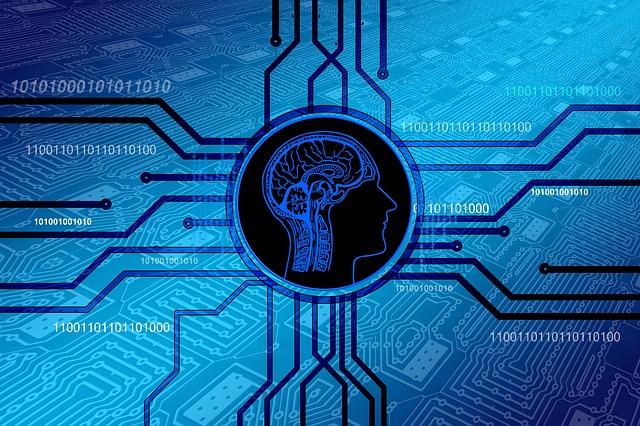The first time I heard the term “data intelligence,” I figured it must have been around for a while.
We live entirely in the digital age. We routinely use a growing number of programs and devices to absorb and create data — to socialize data and disseminate it. The idea that we need to figure out how to associate data with intelligence didn’t seem particularly striking to me. But in its own way, it’s a revolutionary concept.
We’ve spent much of the past decades attaching data to boilerplate functions: daily operations, regulatory mandates, security, storage and routine analytics. Sometimes I even wonder if we spend more on processes and tools for gathering and managing data than on getting the business benefits. We’ve herded it and penned it in, rather than letting it roam through the enterprise to enable and accelerate transformation. We’ve been programmatic rather than creative. We haven’t been intelligent, and neither have our organizations.
I’ve seen up close how enterprises are reluctant to change, and I’ve shared some of those concerns. In this very forum, I’ve advocated the concept of data governance (and also its demise). More than two years ago, an eternity in digital years, I made the case that the process of software development fundamentally involves using existing data or creating new data. That’s why, I argued, we need to add some checks in the system to ensure that the data is handled and protected effectively. It will help control scope, ensure compliance and prevent unpleasant surprises when the software goes live. This is reasonable, not revolutionary, and it’s a long way from Data Intelligence.
There are even more mandates and related constraints today than there were then — hello to the General Data Protection Regulation (GDPR) and its inevitable offspring! There’s certainly a lot more data, constantly generated and absorbed by billions of users in multiple formats. It’s even more of a struggle to collate, manage, protect and analyze all the incoming data streams, which will only keep increasing. But in this dynamic universe, that’s actually a reason to broaden our horizons. Our determination to not do things wrong shouldn’t stop us from doing things right.
The biggest problem is that, despite innovation and experimentation, we’ve accepted the notion that data exists in its own sphere. We constantly seek to extract intelligence from data, as if a few more processing hops will somehow make the data itself smarter. But it isn’t about mechanical characteristics — it’s about us. Information without context is largely meaningless, and we immediately attach our own judgments to that context.
Let’s say a given contract is worth a particular amount. Big numbers make it sound great, but additional data adds more context: What’s the annual recurring revenue? When does it start, how long does it run and what’s the upfront fee? What are the regional complications? Are there industry mandates? These and other questions bring clarity to the context and give perspective on the data. Asking them — before and during decision-making — is crucial.
As technology folks, we love the steady stream of new solutions, but that’s not really an achievement. Look at it this way: There was a time when most technologies inside large corporations were confined to glasshouse environments, zealously guarded by trained specialists in lab coats. It was widely assumed that the rest of us wouldn’t know what to do with all that technical wizardry.
It’s amazing how things have changed. Today, consumer devices are more sophisticated and have more processing power than the biggest computers back then, and we seem to be doing fine (as long as we can maintain the right balance with privacy, ethics, etc.). In fact, we could argue that the consumerization of IT has sparked more innovation than any similar advancement. Computers may be technical wonders, but as Steve Jobs said, they’re really “bicycles for the brain.”
Gartner says data will help us reinvent, digitize or eliminate 80% of all business processes and even products from just 10 years ago. That’s true progress — but it won’t come only from the next wave of new products, or the next or the one after that. Data can’t only be for data scientists — or database administrators or data architects. Technology innovation, important as it is, must be accompanied by processes that make it easier for people to get the data they need, learn from it and collaborate on it. We need to upgrade ourselves from knowledge workers to empowered data citizens.
For this to happen, organizations need to go beyond appointing executives like chief data officers or implementing the newest database, even though those steps are vital. This is a people and process issue. We need to make it easier for people to find the right data, trust it, build on it and collaborate with it. That covers any type of data, insights and algorithms, with full context and transparency, while continuing to ensure compliance. This means, for example, giving the business user a knowledge graph, which connects data elements to business terms to data quality scores to systems to business processes to policies to data sets to reports to algorithms and more.
Here are a few simple questions to get started: What kind of data do business users in your organization have now that only data scientists or analysts had before? Are the professionals in sales and marketing, procurement, finance or operations able to make more data-driven decisions than before? Do those disciplines collaborate with common data sets? Do they have sufficient visibility over the entire data landscape, or is that view restricted?
Intelligence is a fundamentally human characteristic — it goes beyond solutions, volume, performance, scale and infrastructure to focus on people and processes. A business will flourish when it drives knowledge-sharing, collaboration and change throughout the enterprise. We’ll acquire the greatest benefits when we see data not as a decision maker, but as a force that enables us to make smarter and better decisions. That’s data intelligence, and it’s real — and revolutionary.
Source: https://www.forbes.com/sites/forbestechcouncil/2019/09/24/data-intelligence-artificial-or-very-real/



